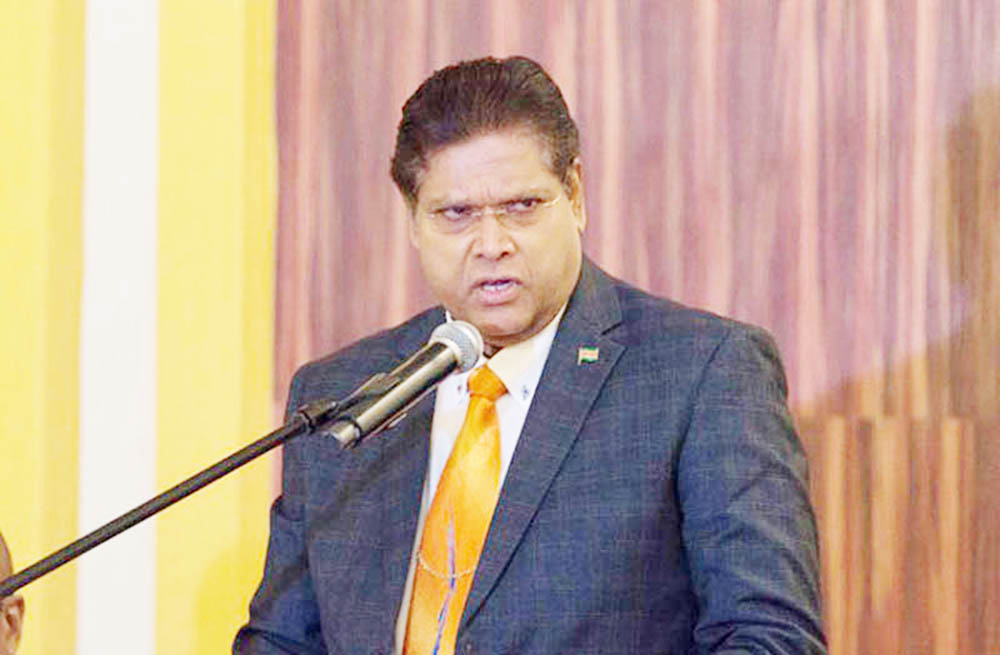Suriname’s preparation to introduce the international community to a country empowered by its new-found status as a hitherto relatively little-known South American republic now empowered by the prospects that inhere in significant oil wealth, continues to take shape under the administration of that country’s president, Chandrika Santokhi.
Earlier this month Santokhi announced that the country was preparing to receive trade missions from fellow Caribbean Community (CARICOM) countries, Trinidad & Tobago and Barbados following what Santokhi said was the country’s successful participation in the World Expo Dubai, between October 1, 2021 and March 31 this year.
The former Dutch colony would appear to be embracing an agenda not dissimilar to that pursued by Guyana in announcing to the world its keenly anticipated arrival in the ‘club’ of South American oil producers, following Guyana down a road that appears set to have fortune changing implications for both countries.
The planned imminent visits to Paramaribo by delegations from Trinidad & Tobago and Barbados are expected to open the door to a surfeit of succeeding visits from both government and business delegations from across the world, to Suriname, the importance of establishing and in some cases strengthening relations with countries possessing hydrocarbon resources, in the prevailing global political climate, not lost to the international community.
A presentation in the country’s national assembly in Paramaribo during the debate on the country’s 2022 budget appeared to provide indications of a road map for a game changing mission by President Santokhi’s administration as part of a broader blueprint for pressing its oil resources into service in pursuit of the transformation of the country’s economy.
In June, a trade mission from the Trinidad and Tobago Manufacturing Association (TTMA) will travel to Paramaribo to engage Suriname’s business community on matters relating to private sector cooperation between the two, and to participate in a planned oil & gas conference in Paramaribo which is being ‘co-organized’ by the country’s state-owned oil company, Staatsolie, and the Suriname government. The country is also expected to host a trade delegation from Barbados in June.
Santokhi reportedly told the National Assembly in Paramaribo, that the country has also moved to establish trade promotion contacts with Brazil, this, following a visit to Paramaribo by Brazilian President Jair Bolsonaro back in January.
Outside the region, Suriname has also reportedly moved to deploy its diplomatic resources further afield with Santokhi announcing in his national assembly presentation that the country’s Foreign Affairs, International Business and International Cooperation Minister, Albert Ramdin, had visited Morocco recently and that a number of virtual meetings had been arranged between the Surinamese and Moroccan business communities.
“Suriname has not only been placed on the map of the world, our art and culture, our nature, flora and fauna, and our diversity has been propagated in a professional manner, which has resulted in Suriname being awarded as one of the best pavilions,” Santokhi is quoted as saying in his address to the National Assembly.
The pattern of Suriname’s ‘economic diplomacy’ pursuits undertaken against the backdrop of the country’s proven significant oil & gas resources is not dissimilar to that undertaken by President Irfaan Ali here in Guyana, whose elaborate diplomatic ‘outreach’ has been underpinned by regional, hemispheric, and global initiatives that have helped to strengthen formal ties with other countries across the world, notably in Africa and the Middle East.
A surge of foreign investor interest in the country’s emerging ‘petro power’ and its attendant potential as an investment haven has served, potentially, to transform an international profile that had been characterised by images of a second-rate plantation economy and an unstable political culture that continually raised doubts about the country’s future.
The recent surge of targeted outreach to the international community being undertaken by Suriname, seeking to ‘sell’ it credentials as a country with promising oil-driven and investment credentials, was preceded by a surfeit of highly publicised engagements between Georgetown and Paramaribo which appeared to deliberately throw Santokhi and President Ali into the limelight, featuring the exchange of official visits by the two Presidents to each other’s countries and seemingly deliberately seeking to propagate an agenda that pushed a still-active Corentyne River controversy to the sidelines.






